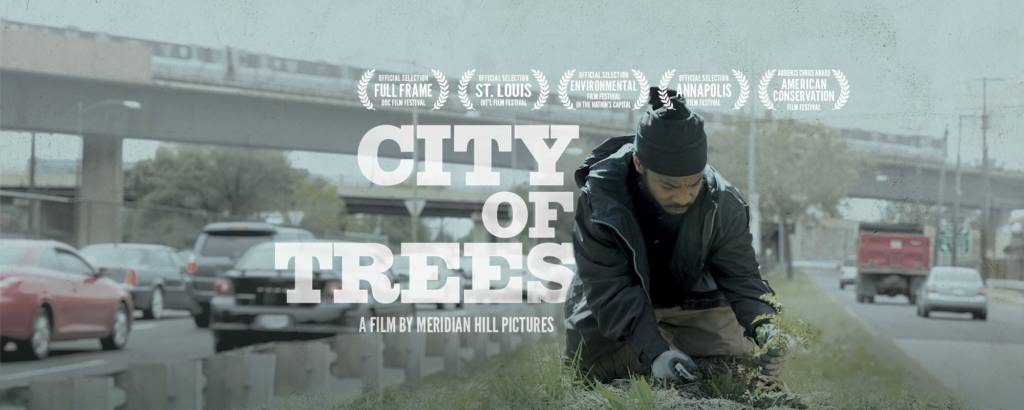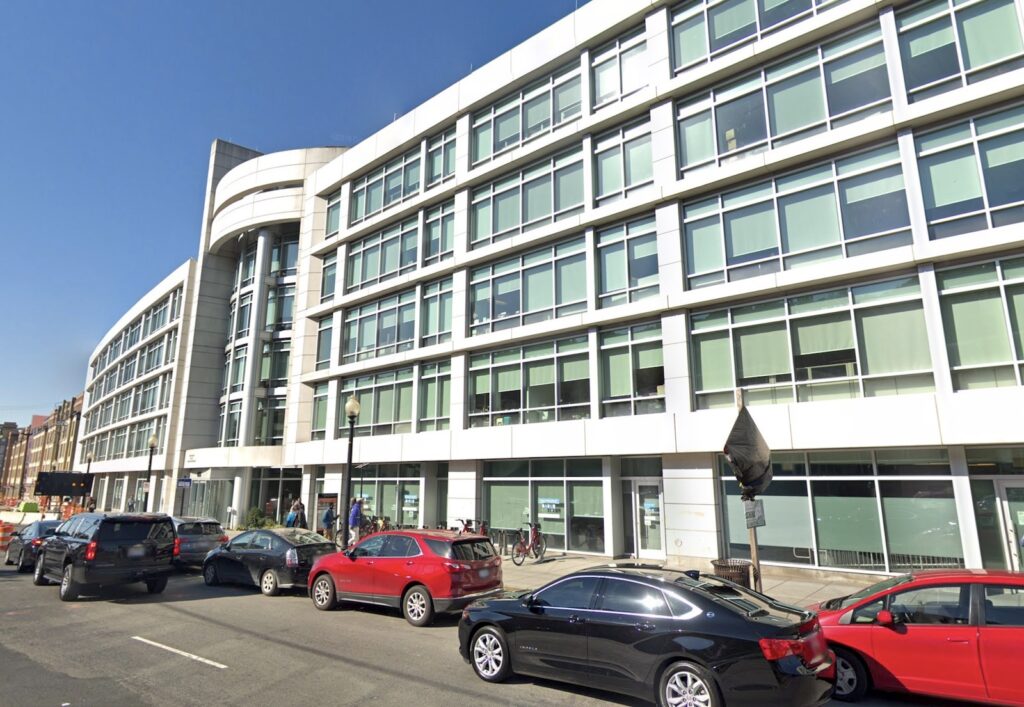In Meridian Hill Pictures’ documentary “City of Trees,” Washington Parks and People faces opposition and fights to continue its job-training program in the six months leading up to an April 2012 grant deadline. While the program has continued since the grant’s expiration, the film captures a local snapshot of unemployment struggles during a national economic downfall.
About 20 people watched the story unfold on screen at an April 21 showing in Ward 8’s Anacostia Community Museum where the film’s producer, Lance Kramer, and two of its subjects, Steve Coleman and James Magruder, discussed the filmmaking process.
“City of Trees” tells the story of Washington Parks and People’s Green Corps. At the height of the country’s recession — and when Ward 8 unemployment was around 25 percent — the job-training program was funded by a $2.7 million stimulus grant in 2010.
Steve Coleman, Washington Parks and People’s executive director and president, and his staff were given two years under the grant’s stipulations to hire 150 jobless D.C. residents to plant several thousand trees and to teach the trainees the soft skills needed to find sustainable employment.
Since its creation in 1990, Washington Parks and People has worked to reduce poverty and violence in D.C. neighborhoods by improving community parks. Starting the Green Corps allowed the nonprofit to conduct intensive job training for the first time. The program aims to “shine a light on the power [the trainees] already have,” according to Coleman.
“You can have all those so-called job training programs in the world, but there’s a thing you can’t really teach,” Coleman said at the April 21 screening. “You just have to kindle it in somebody, have them find it within themselves — and that’s the sense of pride and possibility in their lives.”
 Members of the Green Corps team work with trees in Oxon Run Park in “City of Trees.” Photo courtesy of Meridian Hill Pictures
Members of the Green Corps team work with trees in Oxon Run Park in “City of Trees.” Photo courtesy of Meridian Hill Pictures
The film’s subjects each manifest the program’s positive impacts despite varying employment barriers. Charles Holcomb, a program graduate who was hired as a team leader, anticipates his daughter’s birth as the film begins. He hopes to provide her with the life he never had. With his brother serving a lifetime jail sentence for murder, Holcomb seeks a career with longevity that can support his family.
“I got my own family to raise,” he says in the film. “I got to be an example now.”
Recently released from federal prison after a drug conviction, Michael Samuels wants another chance at employment. A majority of Green Corps trainees enter the program with previous records of incarceration.
Ward 8 community members oppose the Green Corps’ presence in Oxon Run Park during the film after not being informed that trees would be planted in their park. They express their discontent through actions ranging from slashing the organization’s van tires to allegedly pulling out a gun in front of a worker.
To alleviate the tension, Washington Parks and People hires Magruder, a Green Corps graduate, in the film to conduct community outreach in Ward 8.
Magruder has continued his community outreach work for Washington Parks and People to this day. Being a lifelong Ward 8 resident has helped him in this role, he said at the screening.
“The community helped raise me. I attended schools here. I played sports. I guess, in a sense, I’ve always been doing outreach all my life and connecting with people,” he said. “People are more comfortable with familiar faces—someone they can relate to, someone who shares the same struggles.”

James Magruder conducts community outreach work in Ward 8 during “City of Trees.” Photo courtesy of Meridian Hill Pictures
Then-Green Corps Director Karen Loeschner questions, if trees planted by the organization are maintained for two years after they are planted, what can be done to maintain graduates once they leave the program?
The film ends with Holcomb being let go from his Green Corps position due to a lack of program funds. But he finds work as a street cleaner for the nonprofit Capitol Hill Business Improvement District. After graduating from the Green Corps, Samuels works as a building manager for the nonprofit So Others Might Eat.
“City of Trees” premiered at the American Conservation Film Festival in October 2015, where it won the Audience Choice Award. The film is currently being screened at festivals and at community events such as the showing in the Anacostia Community Museum.
The production company behind the film, Meridian Hill Pictures, was founded by brothers Brandon and Lance Kramer. The company began operating in Lance’s basement in 2010, the same year they began working on the film. Brandon directed “City of Trees” while Lance produced it.
They were interested in telling a story about how people dealt with the recession and its recovery—a story not being told at the time.
“We felt like if there was a way to try to represent both those hopes and those struggles in the film,” Kramer said at the screening, “it could be something that could really help—we hoped—teach people something about this moment.”
They shot about 275 hours of footage for the film, which took nearly six years to produce.

Michael Samuels, one of the film subjects in “City of Trees.” Photo courtesy of Meridian Hill Pictures
Seven years since the Green Corp operation began, Washington Parks and People has been able to continue the program despite depletion of the stimulus grant funds. It has graduated 14 cohorts, and over 75 percent of Green Corps alumni find jobs or enroll in additional training post-graduation, according to Washington Parks and People.
“It wasn’t about grants, actually,” Coleman said at the screening. “It was about what the community had done to build the capacity permanently in Parks and People.”
The state of the District’s unemployment has continued to improve since the recession. Ward 8’s unemployment rate was 12.9 percent this past January, according to the Department of Employment Services—still double the District’s average. The number of employed D.C. residents increased by 600 over the month of March, according to an April 21 press release, while the civilian labor force increased by 1,100.
The next screening of City of Trees will take place Friday, May 5, at 7 p.m. in the Carnegie Library at 801 K St. NW. More information is available at http://www.cityoftreesfilm.com.
City of Trees Official Theatrical Trailer from Meridian Hill Pictures on Vimeo.








